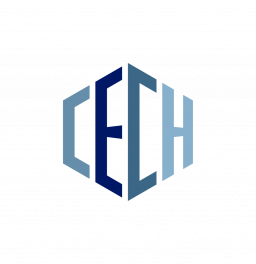The Early Childhood (EC) Project (Pequena Infância/PI in Portuguese) was initially conceived by the Thíasos Cultural Association of the Faculty of Arts and Humanities of the University of Coimbra. It resurfaced in 2011 as part of the activities of the student group The Origin of Comedy, which is affiliated with the Portuguese Association of Classical Studies (APEC).
The EC Project annually assembles a team of approximately four to six volunteer members. Initially comprised solely of Classical Studies students from the Faculty of Arts and Humanities of the University of Coimbra, most of whom oissess experience in theatre, including staging, performance, and academic training, it now welcomes participation from anyone interested.
The Association’s aim in reviving this project was to introduce theatre into the world of children, fostering an understanding of some of its characteristics, while also sharing classical myths, believed to possess the educational power of bygone eras. This ensures access to a cultural environment that has fascinated humanity for several centuries. Since the 2011 edition, we have maintained these goals and expanded the reach of the EC Project to include various contexts such as private social service associations, afterschool programmes, accommodation centres, among others. We have therefore worked with institutions such as the Paediatric Hospital of Coimbra, the Acreditar Association, the Casa do Pai – Bissaya Barreto, the Casa de Acolhimento do Loreto, and the Lar do Padre Serra in S. Martinho do Bispo.
The EC Project intends to conduct and offer a range of classical theatre with both educational and developmental purposes. On one hand, our goal is to explore the physical and psychological potential of children and enhance their aesthetic sensitivity through theatre, incorporating elements related to the history of theatre such as the use of the mask. On the other hand, through dramatic demonstration and interim dialogues, we also seek to emphasise the pedagogical dimension of myth, as experienced in the childhood of ancient Greeks.
As its name suggests, the activity primarily targets early childhood, encompassing children between the ages of 4 and 10. However, due to the higher number of pre-adolescents and adolescents encountered in the institutions, we decided to create two different structures for the presentations, catering to different age groups. One structure involves puppet theatre, scripts, and exercises tailored for the children at the Paediatric Hospital, while the other incorporates more complex scripts, body exercises, and voice training for the older youth. Over the course of two years, it has become customary to culminate the program with a final performance of a theatrical play based on the episodes studied and dramatized during the sessions.
The workshops on dramatic expression explore themes and imaginations of the classical Greek and Roman worlds, regardless of the participants’ age. The specificity of this project lies precisely in this focus on the classical world theme, which is why Greek and Latin myths are presented and explored. Some of the myths include the journey and adventures of Ulysses, the Trojan horse, Penelope’s eternal web, the myth of Minos, Narcissus, Pandora, the Twelve Labours of Heracles, Theseus’s descent into the underworld, the labyrinth of the Minotaur, and the Myth of Atalanta.
Each workshop lasts no longer than an hour and a half. The formative potential of dramatic expression, a key component of aesthetic education, is widely acknowledged by educational professionals, as it fosters artistic creativity and self-awareness of physical, expressive, and creative abilities. Additionally, it promotes aesthetic and ethical literacy. Through this process of self-awareness, children and young people also develop a fundamental value for citizenship: respect for the boundaries of others.

